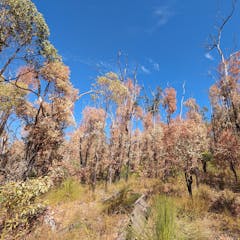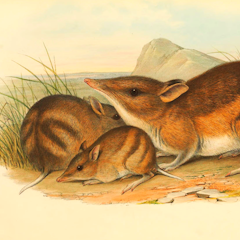
Articles on Ecosystems
Displaying 1 - 20 of 253 articles

Coral reefs share genetic material across wide areas, with help from ocean currents. This ability is especially important during episodes like the mass bleaching currently occurring.

The record-breaking and destructive forest fires of the summer of 2023 made headlines. But how did they affect the millions of lakes in the burned catchment areas?

Earthworms act as ecosystem engineers and over centuries, they have shaped the landscape and changed the soils on the Isle of Rum in Scotland. Here’s how.

Two-thirds of conservation actions studied were found to benefit target ecosystems and species.

Bleached coral draws our attention, but marine heat does damage to many unseen parts of these ecosystems.

With submissions about to close on the government’s proposed fast-track consenting legislation, its possible impact on New Zealand’s diminished and delicate ecosystems demands proper scrutiny.

Intense heat and no rain in southwest Western Australia are causing widespread tree and shrub die-offs.

Kelp forests around the world, and in Canada, are under threat. New research sheds further light on the health, and resilience, of these crucial ecosystems.

In the face of growing social and environmental challenges, organizations in the food and agriculture sector are increasingly turning to nature for inspiration.

Translocation may have been the key to survival for the eastern barred bandicoot but it might not be the golden ticket for every species.

We’ve brought some species back from the brink – but more and more are being threatened. Here’s why

Recent research shows how reducing overfishing is both an ecological imperative and a critical means to addressing climate change.

Introduced water buffalo and camels trash native plants – don’t they? Our research shows megafauna herbivores have the same impact wherever they are.

A survey of Miami-Dade residents found bipartisan support for protecting Biscayne Bay − though most locals were not aware of the extent of its decline in recent years.

There are so many fish in the ocean that if you took them out, important habitats and food sources for many creatures would be lost.

One way to protect our ecosystems is to confer legal rights on them. This idea is at the heart of the ‘rights of nature’ movement – but Australia has few examples of this principle in action.

What happens underground doesn’t stay underground. If we overexploit groundwater and kill off its species, we put surface species – including us – at risk.

South of Cape Cod, fiddler crabs and marsh grass have long had a mutually beneficial relationship. It’s a different story in the North, where the harms can ricochet through ecosystems.

The felling of iconic trees is a highly emotive issue – but the damage needs to be repaired with care.

Students learned not just a practical outdoor skill, but how to explain what they were learning to curious observers.
